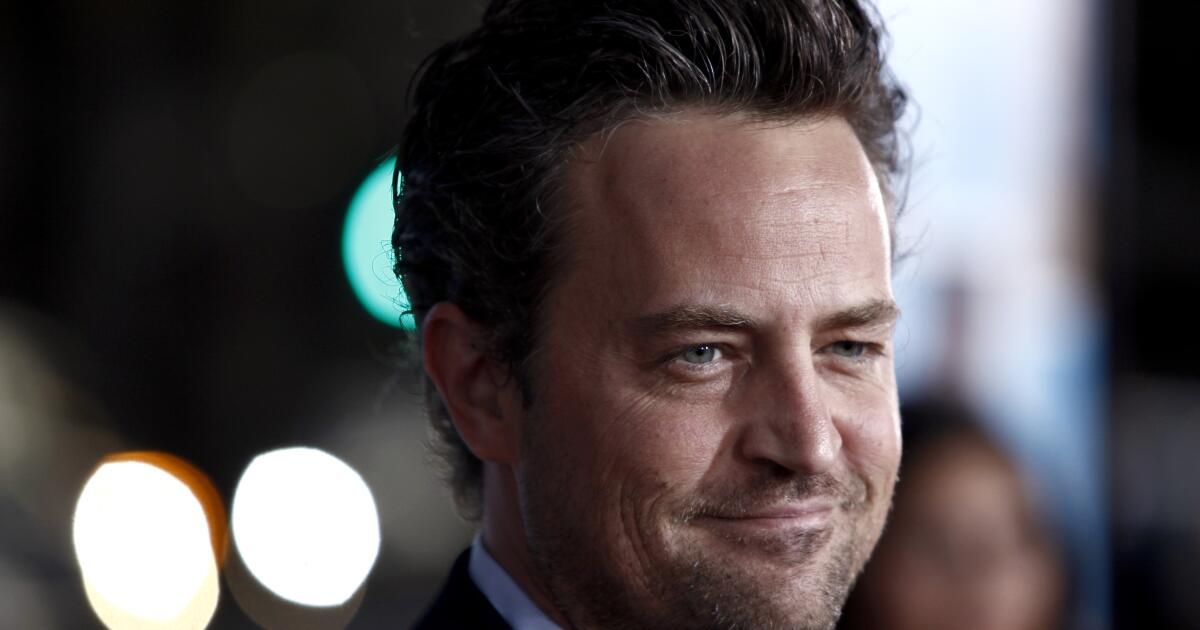It’s impossible to say for certain that Matthew Perry would be alive today if he hadn’t gotten into his hot tub on Oct. 28 of last year. But it’s hard not to wonder. The medical examiner’s report listed “acute effects of ketamine” as the cause of Perry’s death, with contributing factors including coronary artery disease, an opioid known as buprenorphine, and drowning. The actor’s body was found face down in the water.
The report was released in December, but the issue resurfaced last week following the arrest of five people criminally charged with supplying Perry with ketamine. Federal prosecutors charged two dealers, two doctors and Perry’s personal assistant with obtaining and administering thousands of dollars’ worth of ketamine.
The harm is not in ketamine itself, or even in its growing popularity among the rich and famous. It is in its use to take advantage of the sick and vulnerable for personal gain. Crackdowns on a drug are often counterproductive. Crackdowns on the unconscionable exploitation of vulnerable people for personal gain are often appropriate.
Ketamine can have great therapeutic value when administered responsibly and under controlled conditions, but it can be dangerous (like any potent drug or substance, including alcohol, cannabis, and opioids) when used carelessly or in the wrong setting. Too much of either substance can so impair a user's judgment or awareness that otherwise safe tasks, such as driving or swimming in a pool, can become deadly.
In the case of potent opioids like fentanyl, an overdose can cause instant death. This rarely happens with ketamine, but responsible doctors and therapists do not leave patients without care and with access to dangerous amounts of the drug.
But ketamine, legally approved for use in humans and veterinarians as anesthesia and sedation, has long been a popular club drug and is increasingly marketed through clinics to the wealthy to treat depression and other psychiatric illnesses.
Our society continues to struggle to find the right approach to criminal justice and the regulation of mind- and mood-altering substances. Our grandparents and great-grandparents lived through a brief period under Prohibition, when the ban on most alcoholic beverages made social drinking a crime, enriched mobsters and rum smugglers, and increased lethal violence.
Cannabis prohibition exacerbated racial discrimination in law enforcement and prosecutions, and corrupted the criminal justice system by allowing police departments to keep cash and other assets allegedly linked to drug crimes. The opioid crisis turned pharmaceutical companies into promoters and doctors into dealers, and sapped the spirit of hundreds of cities devastated by addiction and already struggling with a changing economy. Criminal justice reforms that seek solutions other than prosecution and prison too often lead to police simply not bothering to respond to drug-related antisocial behavior.
We tend to oscillate between criminal prohibition and reckless mass advertising. Too often, the binary perspective lacks sufficient doses of public education and public health: education to warn about the dangers of different drugs without the hysteria and criminalization of the “Reefer Madness” type, and public health to provide care and treatment for those who are tragically trapped by addiction.
When used with guidance and care, ketamine is a remarkable if controversial drug, touted by some for its off-label use to help patients overcome debilitating emotional trauma.
It has also been used, outrageously, as a cruel law enforcement tool, as in the horrific case of 23-year-old Elijah McClain, who died in 2019 several days after two Aurora, Colorado, paramedics injected him with a drug while police officers restrained him for detention. He had not been charged with a crime.
There is no clearer sign that we are in a tough spot in the war on drugs than this: Police continue to arrest people for drug possession, but inject suspects with drugs to help them make arrests.
Fortunately, ketamine injection has not caught on as a police technique, and paramedics and officers have been held accountable for McClain's death, losing their jobs and, in some cases, being prosecuted and convicted.
In Perry’s case, if prosecutors’ allegations are correct, more wrongdoers could face justice. There will always be dealers, whether it’s big pharmaceutical companies trying to boost sales of addictive painkillers, high school students selling fentanyl-laced methamphetamines or doctors trying to squeeze a few more dollars out of addicted patients. The key is to end their cruelty without banning useful drugs.












